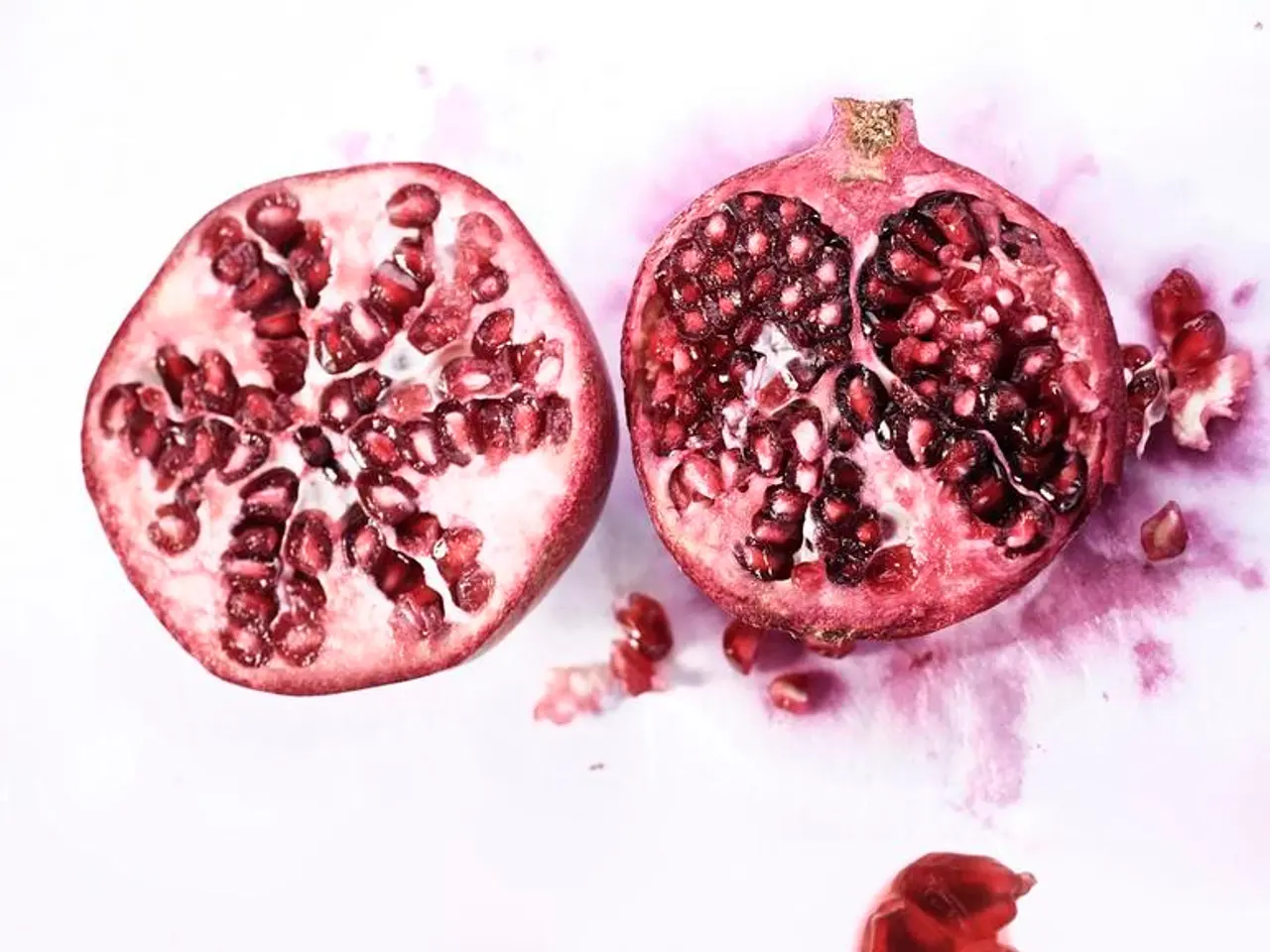Easy Methods for Homemade Jelly-like Sugar
Sugar-free preserves have become increasingly popular among home cooks, and with good reason. Here's a comprehensive guide on how to make sugar-free jam and marmalade, complete with essential tips and methods.
Sterilizing Jars
The shelf life of sugar-free jam depends on proper sterilization. This can be achieved by boiling water or using an oven. Ensure your jars are clean and sterile before filling.
Testing the Consistency
The spoon-test is a simple method to check the jam's consistency. If a clear track remains visible when stirring with a wooden spoon, the jam is ready. The teller-test involves placing a drop of jam on a cold plate from the freezer. If it doesn't run after 30 seconds, the consistency is correct.
Pectin-Rich and Pectin-Poor Fruits
Pectin-poor fruits, such as strawberries, cherries, peaches, apricots, raspberries, and blackberries, require additives to achieve the correct consistency. On the other hand, pectin-rich fruits like apples, quinces, currants, cranberries, gooseberries, lemons, and oranges are ideal for beginners making sugar-free jam.
No-Cook Variants
Two no-cook methods involve the use of chia seeds or flaxseeds. Allow the mixture to sit for the recommended time to allow the seeds to absorb liquid and thicken. Stir occasionally to prevent clumping. For better shelf life, you can briefly cook the no-cook jam before filling into jars.
Temperature-Test
The optimal gelling temperature for sugar-free jam is 104-106°C, which can be determined precisely with a kitchen thermometer.
Adjusting Consistency
If the jam has become too runny, it can be thickened by reheating and reducing for longer, dissolving 1 tsp agar-agar in cold water and stirring in, or adding grated apple and continuing cooking. Conversely, thinning the jam with fruit juice or water and reheating until filling hot can help if the jam is too thick.
Storing Your Preserves
Sealed jars of sugar-free jam can be stored in a cool, dark place for 6-12 months. Opened jars should be stored in the refrigerator for 2-4 weeks, always using clean spoons, and discarded if there's a change in smell, taste, or appearance.
Marmalade without Pectin Sugar Using Agar-Agar
To make marmalade without pectin sugar using agar-agar, cook your fruit until soft, then add agar-agar powder, stir well, and boil for about 2 minutes to activate the gelling properties of agar-agar. After boiling, pour the mixture into molds or jars and refrigerate until set, resulting in a thick marmalade without the need for pectin or high sugar content.
When making marmalade with agar-agar, use ripe citrus fruits, peeled and chopped, including some zest for flavor. Boil the fruit with a small amount of sweetener if desired. Add agar-agar powder dispersed or mixed with sugar once the fruit is soft. Stir continuously and boil on low heat for about 2 minutes after adding agar-agar to activate its gelling effect. Pour into sterilized jars or molds and let cool or refrigerate to set. Agar-agar sets at room temperature but refrigerating can speed up the process and improve texture.
Agar-agar sets much firmer and faster than pectin, so measuring agar carefully is important (usually about 1 teaspoon per cup of liquid). It provides a vegetarian alternative to gelatin and works well even without large amounts of sugar. This method avoids pectin and allows for control over sugar content while achieving a thick marmalade texture through agar-agar's gelling properties.
[1] [Source 1] [3] [Source 3] [5] [Source 5]
- For those interested in health-and-wellness, exploring sugar-free healthier options for food-and-drink such as sugar-free preserves can be beneficial.
- Fitness-and-exercise enthusiasts might find it interesting to note that the cooking process of sugar-free jam involves minimal sugar, aligning with a healthier lifestyle.
- The science behind sugar-free jam making involves understanding the role of pectin, a natural substance found in fruits, which affects the jam's consistency.
- For those seeking new lifestyle hacks, the technique of using chia seeds or flaxseeds for no-cook sugar-free jams can be a convenient alternative for busy home cooks.




